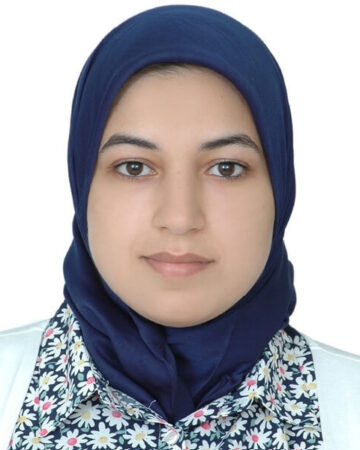An Analytical Study of the Implementation of Immersive Technologies in Mechanical Engineering Education in Morocco: A Qualitative Approach
June 03, 2024 | 2:30 - 3:45 PM
About this event
This research is conducted within the framework of Moroccan higher education to investigate the current status of virtual reality (VR) implementation and explore its potential benefits and challenges within the educational system.
The immersive Technology has become an integral part of our daily lives, revolutionizing various industries including agriculture, business, research, and education. Immersive technology refers to a set of technological tools and techniques that create highly realistic and immersive digital experiences for users (Jain & Werth, 2019).These experiences often involve virtual reality, augmented reality, and mixed reality technologies, which combine computer-generated visuals, audio, and sometimes haptic feedback to create a sense of presence and immersion in a virtual environment.
Virtual Reality (VR) has the potential to revolutionize education, particularly in developing countries like Morocco where the digitalization of education is a top priority. By integrating VR technology into the education system, Moroccan students can experience immersive learning environments that go beyond traditional classroom settings. This is particularly beneficial in areas where access to resources and educational facilities is limited.
Despite some initiatives, VR remains underutilized in Moroccan schools. Our study delves into the factors hindering its integration and suggests strategies to overcome these barriers, aiming to facilitate the effective use of VR as a valuable teaching tool in Moroccan higher education.
We commence our paper by reviewing existing literature on the use of immersive technologies in mechanical engineering education. Subsequently, we conduct case studies showcasing notable instances of AR and VR implementation in Moroccan educational institutions. This investigation yields valuable insights into the practical application of these technologies and their impact on educational outcomes in the local context.
We examine specific cases involving the integration of immersive technologies in mechanical engineering projects at the Office of Professional Training and Promotion of Labor (OFPPT), such as VR welding, VR painting, and HSE (Health, Safety, and Environment) simulation. Qualitative analysis of these cases reveals the challenges and best practices within the Moroccan context. These findings, along with the field investigation, inform our SWOT analysis. This holistic approach enables us to identify constraints and opportunities, offering insights for future implementation of AR and VR technologies in education.
Methodology:
Our case study method is based on a qualitative approach to explore the integration of VR in Moroccan higher education. The study unfolds in multiple phases, commencing with an extensive literature review to extract insights from existing scholarship. Subsequently, empirical data is gathered through active observations and semi-structured interviews with education professionals. Our research methodology involves on-site observations at various educational institutions to scrutinize VR implementation practices in Morocco’s higher education landscape. Interviews are conducted with educators, students, leaders, and specialists to gather diverse perspectives. By amalgamating these methodologies, our study aims to provide valuable insights for policymakers and educators regarding successful VR integration in Moroccan education. Furthermore, we use the SWOT (Strengths, Weaknesses, Opportunities, and Threats) matrix to effectively organize the gathered information, offering a structured framework for strategic analysis of internal and external factors influencing VR implementation.
Results:
The study unveiled many positive aspects of the Moroccan educational context that could empower the implementation of immersive projects. These technologies provide students with valuable practical skills and immersive experiences, improve the quality of learning, and offer personalized learning experiences.
The case study analysis enabled us to determine several weaknesses related to the adoption of VR technology. We find, among others, the high cost of equipment versus the insufficient funding by the government, inadequate infrastructure, and a shortage of teachers trained in the use of immersive technologies in their classrooms.
Moreover, VR can effectively address challenges related to technical laboratory maintenance, scarcity of raw materials, and other resource limitations. It plays a crucial role in providing equal educational opportunities for students in remote or underprivileged areas, effectively bridging the digital divide. Lastly, VR serves as a valuable tool in supporting the development of essential 21st-century skills, such as critical thinking, problem-solving, and collaboration.
Overall, immersive technologies have significant potential to enhance education in Morocco by providing an immersive and interactive learning experience. However, the implementation of VR technology will require significant investment and support from the Moroccan government, education system, and private sector.
Presenter(s)

Khadija Talbi
Université Hassan II, Casablanca

Imane Zergout
Université Hassan II, Casablanca

Souad Ajana
Université Hassan II, Casablanca

Zineb Ait Haddouchane
Université Hassan II, Casablanca
Additional information
- Location
- Concordia University - Henry F. Hall Building Montreal, Mezzanine
- Organizer
- SALTISE
